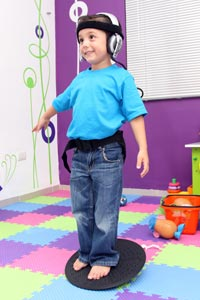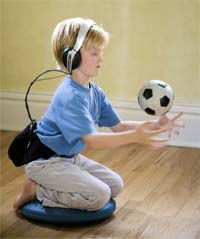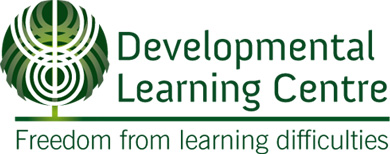 Auditory Retraining Therapy
Auditory Retraining Therapy
This therapy is based on the pioneering work of Dr Alfred Tomatis- a French ear, nose and throat specialist. Dr Tomatis discovered that we cannot say sounds which we cannot hear. He also identified the important distinction between hearing and listening. Hearing is the perception of sound. Listening is what we do with what we hear. Dr Tomatis discovered that a person can have normal hearing but very poor auditory processing. He initially developed this work for children with learning difficulties by treating nonverbal children on the autistic spectrum, using his electronic ear. This work was then extended and applied to many different types of learning disabilities.
Dr Tomatis discovered that good listening is the key to effective learning, attention and social interaction. Listening re-training can dramatically improve many different areas including sensory processing, body awareness and gross motor control, posture, attention, communication, memory, energy levels, and achievement in literacy and numeracy, and is also very helpful for those with learning or emotional regulation difficulties, tantrums and meltdowns, poor social skills or generalised immaturity. We use Auditory Retraining Therapy to treat those with Auditory Processing Disorders or difficulties as well as children with sensory integration difficulties, ADHD, Asperger’s Syndrome, emotional regulation problems, anxiety and other related conditions.
Watch our video below to see the wonderful results Auditory Retraining Therapy can have on children with learning and behavioural difficulties.
How do I know if my child is having auditory processing difficulties?
Does your child have normal hearing but experienced some of the following?
- Often has difficulty listening and paying attention
- Frequently drift off into their own world and lose concentration
- Misunderstand spoken information or instructions
- Frequently ask “what?” when spoken to
- Need to have instructions repeated more frequently than others
- Have difficulty following more than one or two instructions at a time
- Get easily distracted by background noise
- Have trouble hearing similarities and differences in sounds
- Have poor phonic skills in reading and / or writing
- Have speech problems
- Appear to be overly sensitive to certain sounds or frequencies
- If the answer is yes to one or more of these questions your child may have an Auditory Processing Difficulty/Disorder which is affecting his ability to understand spoken language.
Take our free online learning difficulties symptoms test to discover if your child could benefit from Auditory Retraining Therapy.
What is involved in the Auditory Processing Assessment?
Before we undertake any therapies, it is necessary to ASSESS and IDENTIFY the underlying causes of your child's difficulties. The ASSESS stage is made up of two elements – the Auditory Processing Assessment and Developmental Movement Assessment. We strongly recommend your child completes both to gain a full picture of their difficulties. However, in some cases we do offer the assessments separately. Once the tests are completed, we will be able to IDENTIFY the underlying causes of your child's difficulties and recommend the right treatment.
Here are the different elements we test for in the Auditory Processing Assessment:
- Auditory Analysis (hearing and separating the sounds in words)
- Auditory Sequential Memory (short term auditory memory)
Scan C or A Test:
- Auditory Closure (processing muffled or unclear speech)
- Auditory Figure Ground (processing speech with background speech babble)
- Processing of Competing Words (repeating 2 words heard at the same time)
- Processing of Competing Sentences (attending to 1 speaker when able to hear 2)
- Auditory Sequencing (hearing sounds/words in the correct order)
- Ear Advantage (ear dominance for spoken language)
Test of Auditory Processing Skills( TAPS)
- Auditory Discrimination
- Phonological Segmentation
- Number Memory Forward
- Number Memory Backwards
Tomatis Listening Test:
- Air and Bone Conduction Thresholds
- Pitch Discrimination
- Auditory – Spatial Awareness
Book an Assessment at the Developmental Learning Centre.
What does Auditory Retraining Therapy involve?
 Centre based
Centre based
We use the Integrated Listening Systems® Pro programme. Students attend one of our centres, usually on a daily basis for listening sessions of 1 hour 20 minutes.
Each listening therapy programme is prescribed specifically for each listener by an Advanced iLS Listening therapist and entered daily by our technicians into an iPod. Therapy involves listening to acoustically modified classical music to provide enhanced or filtered sounds across the whole range of frequencies. Therapy is directed more intensely at areas of specific weakness as seen in the Listening Test.
Listening Tests and parent Conferences are repeated at crucial intervals 4 times during therapy as changes are rapid.
A 15-20 minute multi-sensory movement programme is also included in each session. Mother’s Voice Therapy may also be used, and Expressive Language and Speech Exercises with microphone work may also be prescribed in the final phase of therapy.
Home based
For mild cases and those at distance who cannot attend a daily intensive programme, a pre-programmed, portable unit may be recommended. Listening sessions are 1 hour per day and equipment and instructions for the multisensory movement programme are provided. A minimum of 40- 80 sessions are usually required, followed by a reassessment.
Who is it for?
This therapy is for clients of all ages. It is especially helpful for those with listening difficulties, vestibular or balance difficulties, other sensory processing issues, ADHD, those on the autistic spectrum and teenagers facing exams who need a rapid boost.
How does it work?
This therapy was developed by Dr Ron Minson, founded on the pioneering work of Dr Alfred Tomatis. Dr Tomatis discovered that it was possible to retrain and improve the processing of sound by the brain stem and cortex using filtered music (i.e. music with certain frequency ranges removed or enhanced) and the sudden and random alteration to the pitch or tone of the music (‘gating’). Using filtered music delivered via ear phones and a bone conductor in the headband, the therapy stimulates brain function and matures the auditory system.
What types of activities will my child do?
 Each listening therapy programme is prescribed specifically for your child and programed daily into an iPod. Therapy involves listening to acoustically modified classical music to provide enhanced or filtered sounds across the whole range of frequencies. Therapy is directed more intensely at areas of specific weakness as seen in the Listening Test. A 15-20 minute multi-sensory movement programme is also included in each session. Movement stimulates the vestibular (balance system) which is closely connected to the auditory system and activates the cerebellum, where our motor planning, movement patterns and coordination are established. By moving, balancing and listening at the same time we can maximize the integration of the listening therapy on the sensory areas of the brain, enabling rapid maturation of the pathways needs for sensory processing, communication, higher cognitive functioning and learning.
Each listening therapy programme is prescribed specifically for your child and programed daily into an iPod. Therapy involves listening to acoustically modified classical music to provide enhanced or filtered sounds across the whole range of frequencies. Therapy is directed more intensely at areas of specific weakness as seen in the Listening Test. A 15-20 minute multi-sensory movement programme is also included in each session. Movement stimulates the vestibular (balance system) which is closely connected to the auditory system and activates the cerebellum, where our motor planning, movement patterns and coordination are established. By moving, balancing and listening at the same time we can maximize the integration of the listening therapy on the sensory areas of the brain, enabling rapid maturation of the pathways needs for sensory processing, communication, higher cognitive functioning and learning.
How long will it take?
In-Clinic Programme
Distance Programme
The Developmental Learning Centre clinic is located in Tauranga. Where distance is a barrier for families who are unable to participate in our In Clinic programme, we offer homebased programmes based on your child's individual needs. This programme includes an iPod, amplifier, bone conduction headphones a Playbook with an integrated movement programme and an Integration Kit including balance board, beanbags and indoor balls. The iPod contains specific iLs programs carefully selected for your child by one of our clinicians. A minimum of 12 weeks daily listening is required.
How will I know it is working?
Many parents see a change in their children almost immediately following therapy.
Four Auditory Assessments are carried out at crucial intervals and a Parent Conference held after each to update you on your child’s progress. Approximately 6 months after therapy completion, we carry out a Final Assessment.
Does your child have learning or behavioural difficulties?
Call 0800 543 399 or Request a free call back from one of our experienced team to understand how your child could benefit from our natural and holistic therapies.
